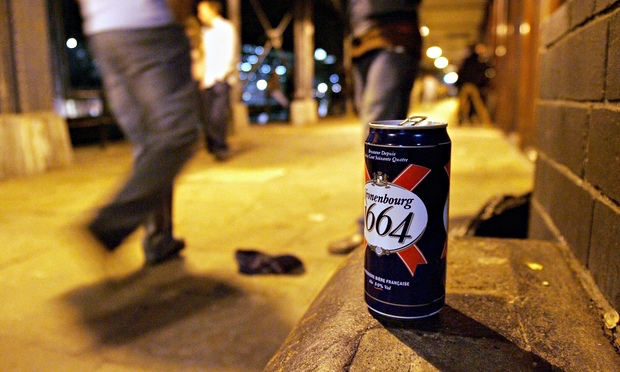A certain amount of amnesia is required if you are to believe everything the ‘public health’ lobby tells you. Alcohol is frequently in the media but the only story relating to drink that is genuinely newsworthy is the steep decline in drinking that has occurred in the last decade. Britain has been witnessing its biggest fall in alcohol consumption since the 1930s. This trend was ignored for a long time, but once it became clear that it was not a statistical blip the truth began to seep out.
The BBC, which has never seen an anti-alcohol press release it doesn’t like, asked in 2011: ‘Why is alcohol consumption falling?’ After years of fretting about ‘24 hour drinking’ and ‘pocket-money prices’, it admitted that ‘behind these stories is an unexpected truth – Britons have been drinking less and less every year since 2002’.
A few months later, it owned up to another unexpected truth when it announced that fewer teenagers were drinking. This downward trend had actually begun in 2001 when 26 per cent of 11-15 year olds claimed to have had an alcoholic drink in the last week. Today, the figure is nine per cent.
Once the truth had its shoes on, there appeared to be no stopping it. Subsequent BBC headlines included ‘The rise of the young non-drinkers’, ‘Binge-drinking continues to fall in young adults’, ‘Are we now on half measures?’ When even the Daily Mail ran a story under the headline ‘End of Booze Britain?’ earlier this year, it seemed that health reporters were ready to rejoin the reality-based community.
Old habits die hard, however, and it only takes a small spark for the moral panic to be reignited. This week, the match was struck by the OECD with an EU-funded report on drinking which seemed largely aimed at convincing governments that minimum pricing and advertising bans were jolly good ideas. The report itself is a reheated dog’s dinner of the usual neo-temperance demands by some of the most partisan researchers in the field, and the coverage of it was suitably atrocious.
The BBC – who, let’s remember, are unique in having no commercial interest in sensationalising ‘Binge Britain’ – reported that alcohol consumption in the UK is 10.6 litres per person and that this is higher than it was in the early 1990s. This is at odds with the commonly accepted figures derived from HMRC data which show that 9.4 litres of alcohol were drunk per adult in 2013, which is less than the 9.8 litres drunk in 1990 and exactly the same as the 9.4 litres drunk way back in 1980.
The BBC went on to claim that ‘There also appears to have been a rise in youth drinking’. A quick search through the Beeb’s own news archive would have been enough to dispel that risible assertion.
Based on such dubious claims, the BBC says that the UK’s level of alcohol consumption is above the OECD average. That would not be too surprising, given that drinking levels tend to be higher in rich countries, but the OECD report does not actually use OECD member states as comparators, nor are OECD member states ‘the 34 wealthiest countries’ as the BBC claims.
The report looks instead at 40 countries, including majority-Muslim nations such as Indonesia and Turkey which help to bring down the average. It also includes poor countries such as India and China which do likewise. Of the 34 countries that are OCED members, the UK ranks tenth in terms of alcohol consumption, or rather it would if the OECD’s figures were correct, which they aren’t.
Here are a few facts. Alcohol consumption in Britain, per adult, fell by 19 per cent between 2004 and 2013. ‘Binge-drinking’ (defined as consuming more than eight or six units in a day for men and women respectively), has fallen from 29 per cent to 18 per cent amongst 16 to 24 year olds, and from 25 per cent to 19 per cent amongst 25 to 44 year olds.
There have been smaller declines amongst every other age group. Rates of teetotalism are now as high amongst 16 to 24 year olds as they are amongst pensioners (27 per cent). The proportion of 11-15 year olds who have never had a drink rose from 39 per cent in 2002 to 61 per cent in 2013. And, according to the Office for National Statistics, the ‘proportion of young adults who drank frequently has fallen by more than two-thirds since 2005’. As for cheap alcohol, British drinkers pay 40 per cent of all the alcohol duty collected in the EU.
In so far as it ever deserved the name, ‘Binge Britain’ has ended. Get over it.






Comments